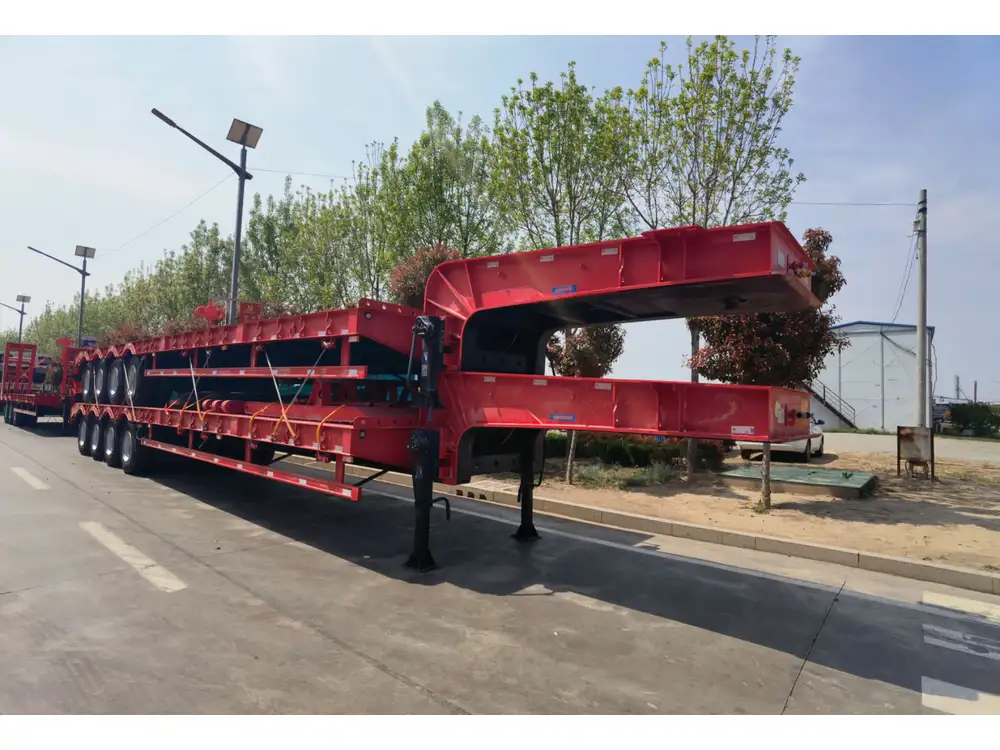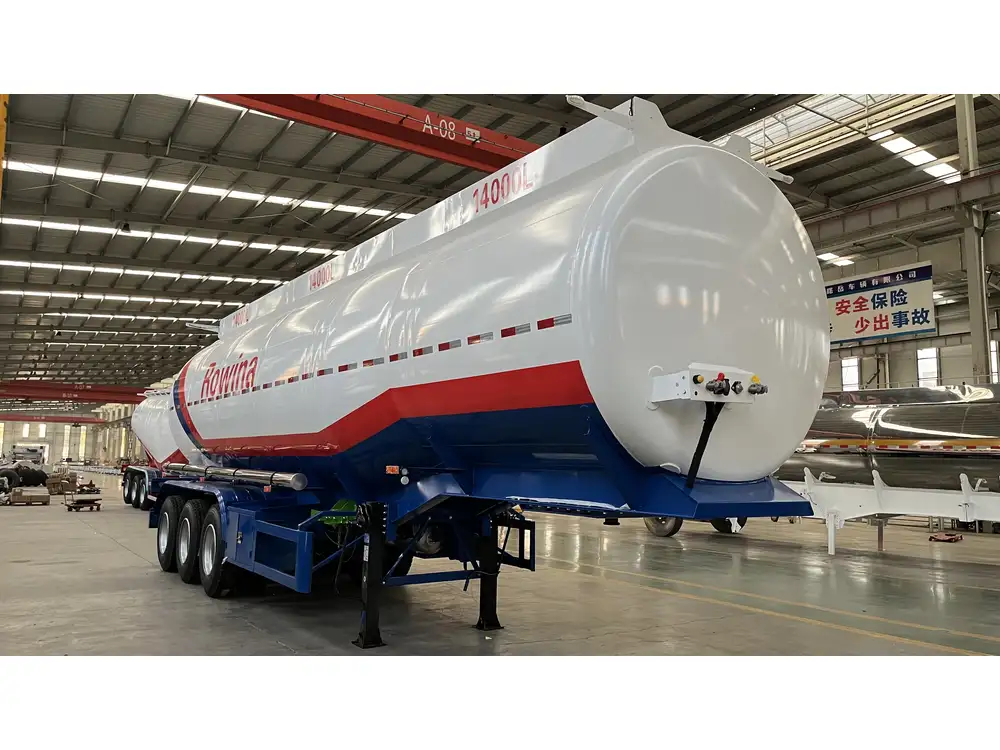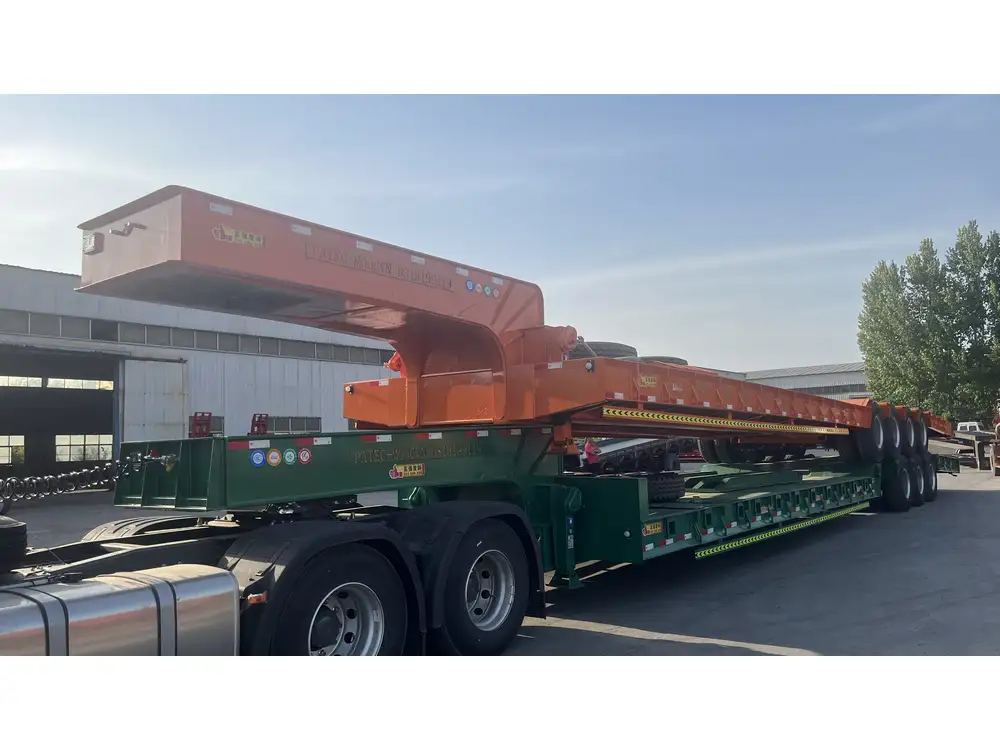Choosing the right size dump trailer can significantly impact your transportation efficiency, project costs, and operational workflow. Whether you’re a contractor, landscaper, or homeowner, understanding the dimensions, capacities, and applications of dump trailers is paramount. In this article, we will dissect the various sizes of dump trailers, their specifications, and applications to help you make an informed decision that aligns with your specific needs.
Understanding Dump Trailer Sizes
Dump trailers come in various sizes, generally categorized by their length, width, height, and weight capacity. Here’s a breakdown of standard dump trailer sizes:
| Dump Trailer Size | Load Capacity (lbs) | Best For |
|---|---|---|
| 5 x 8 feet | Up to 3,000 lbs | Small residential projects, yard waste, landscaping materials |
| 6 x 10 feet | Up to 4,500 lbs | Small construction jobs, home renovations, and debris disposal |
| 7 x 12 feet | Up to 6,000 lbs | Landscaping, roofing, and small trailers for agricultural use |
| 8 x 14 feet | Up to 7,500 lbs | Larger construction projects and bulk material transport |
| 8 x 16 feet | Up to 12,000 lbs | Heavy-duty construction, excavation, and demolition work |
| 10 x 20 feet | Up to 20,000 lbs | Commercial construction and large capacity hauling |
Factors to Consider When Choosing a Good Size
- Project Scale: Assess the overall scope of your project. Larger jobs may require dump trailers with greater capacity and size.
- Type of Materials: Heavier materials like soil, rock, or debris demand more robust trailers. Mirrors and dimensions also warrant consideration.
- Transport Vehicle Compatibility: Ensure that your towing vehicle can handle the weight and size of the dump trailer you opt for.
- Local Regulations: Some jurisdictions have maximum size and weight limits for trailers. Be sure to check local laws to avoid penalties.
- Storage Availability: Consider how much space you have for parking and storing your trailer when not in use.

Popular Dump Trailer Sizes and Their Uses
Exploring the popular dump trailer sizes will give you insights into what might work best for your needs based on common variants and their applications.
5 x 8 Feet: Perfect for Small Projects
The 5 x 8 dump trailer, with a capacity of around 3,000 lbs, is the ideal choice for small residential projects. This size is typically very manageable for smaller vehicles, which makes it easy to maneuver in tight locations.
- Applications:
- Yard waste disposal
- Small landscaping projects
- Debris from minor renovations
Pros:
- Lightweight and easy to tow.
- Convenient for home use.

Cons:
- Limited volume; may not be suitable for larger debris or long-haul construction work.
6 x 10 Feet: Versatility in Medium Jobs
With a capacity of up to 4,500 lbs, the 6 x 10 dump trailer is a versatile option for tradesmen who require a bit more space without the bulk of larger trailers.
- Applications:
- Home renovations (i.e., roof shingles, drywall)
- Small construction jobs
- Firewood transportation
Pros:
- A balance between size and manageability.

Cons:
- Might still fall short for heavier or larger-scale jobs.
7 x 12 Feet: Standard Construction Size
This trailer size, boasting a capacity of up to 6,000 lbs, is becoming the industry standard for many construction and landscaping professionals.
- Applications:
- Residential construction
- Bulk material and debris hauling
- Heavy equipment transport
Pros:
- Great capacity for medium to large jobs.
- Compatible with several towing vehicles, making it versatile.

Cons:
- Requires a more robust towing vehicle compared to smaller sizes.
8 x 14 Feet: For Heavy Duty Applications
For those who require a trailer that can handle larger hauling jobs, the 8 x 14 feet trailer serves as an excellent option with a robust 7,500 lbs capacity.
- Applications:
- Heavy material transport on construction sites
- Demolishing debris
- Agricultural material transport
Pros:
- Enhanced durability and reliability for heavy-duty tasks.

Cons:
- Heavier and requires a suitable towing vehicle.
10 x 20 Feet: Maximum Capacity
The largest commonly available size, the 10 x 20 dump trailer, caters to those in commercial construction or extensive agricultural operations. With a capacity of up to 20,000 lbs, this trailer facilitates maximum material transport.
- Applications:
- Large-scale construction projects
- Heavy material for excavation sites
- Waste management for industrial projects
Pros:
- Exceptional volume for substantial debris removal.

Cons:
- Requires specialized towing vehicles and attention to regulations regarding weight limits.
Capacity Considerations: Load Distribution and Weight
Understanding load distribution is critical for optimal safety and performance.
Payload Capacity: The maximum weight a trailer can carry, including the weight of the trailer itself. Always account for cargo weight in relation to your vehicle’s towing capacity.
Tow Vehicle Limits: Examine the Gross Vehicle Weight Rating (GVWR) of your tow vehicle to ensure that it can adequately handle the trailer and its load.
Safety Considerations
- Always load materials evenly to prevent swaying while towing.
- Consider using tie-down straps for loose material.
- Ensure that your trailer’s brake system can handle the load.

Cost Implications of Different Sizes
When looking at the utilization of dump trailers, costs vary significantly based on size:
| Dump Trailer Size | Average Price Range | Rental Cost (per day) |
|---|---|---|
| 5 x 8 feet | $2,000 – $4,000 | $50 – $80 |
| 6 x 10 feet | $3,000 – $5,500 | $60 – $100 |
| 7 x 12 feet | $3,500 – $7,000 | $70 – $120 |
| 8 x 14 feet | $4,500 – $9,000 | $80 – $150 |
| 10 x 20 feet | $5,500 – $12,000 | $100 – $200 |
Long-Term Value
Investing in a quality dump trailer can yield long-term savings. Consider usage frequency and materials transported when weighing the initial cost against your expected return.
Maintenance and Longevity
Proper maintenance prolongs the lifespan of your trailer. Here’s how you can enhance its durability:
- Regular Inspections: Check brakes, lights, and tires before each use.
- Correct Loading Techniques: Avoid overloading to maintain the structure integrity.
- Routine Cleaning: Remove debris and corrosive materials after use.

Conclusion: The Right Size for Your Needs
Choosing the right dump trailer isn’t merely about picking a size off a list—it involves understanding your project needs, vehicle capabilities, and long-term usage. Assessing factors such as load capacity, intended applications, and compliance with regulations will guide your decision.
Ultimately, the best size dump trailer for you depends on a myriad of personal factors, such as the nature of your work, budget, and frequency of use. By aligning your specific requirements with the capabilities of dump trailers available in the market, you set yourself up for success in whatever hauling undertaking lies ahead. Whether you’re a contractor looking for efficiency or a homeowner embarking on a renovation project, clarity in your choice will lead to optimal performance and satisfaction.



